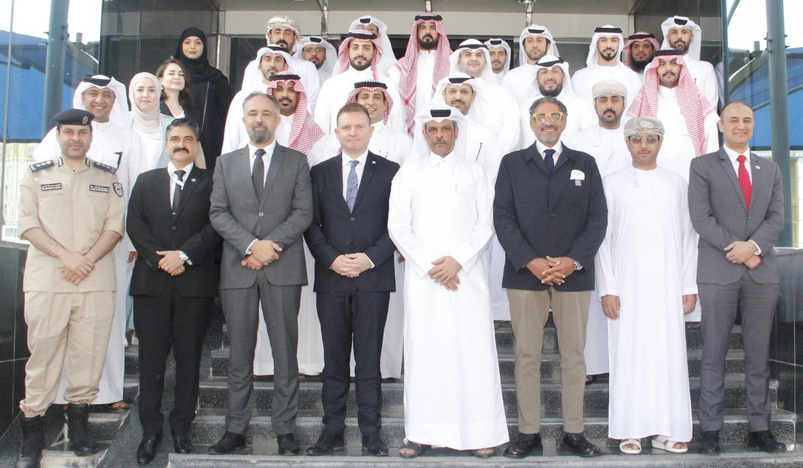
GCC Anti-Narcotics Officers
The specialized training course in the field of "cybersecurity and its link to drug crimes" for officers of the anti-drug agencies in the Gulf Cooperation Council (GCC) countries concluded Thursday in Doha.
The course was organized by the Doha-based GCC Criminal Information Center to Combat Drugs (GCC-CICCD), in cooperation and coordination with the Police Academy, the United Nations Office on Drugs and Crime (UNODC), and the UN Global Program on Cybercrime.
At the conclusion of the training course, Director of the GCC-CICCD Brig. Gen. Issa Saeed Zayed Al Kuwari said that the center seeks to enhance regional and international cooperation in the field of combating drugs, and contributes to raising the capabilities of those working in the field of combating drugs, including officers, non-commissioned officers, and customs officers through a comprehensive training plan that is developed annually according to the training needs of the member states.
He stressed the need to exchange information and expertise in the field of combating drugs, as it contains new methods and techniques in the field of manufacturing and smuggling narcotics, which contributes to achieving the lofty and noble goals of protecting societies from this scourge and the criminal gangs behind it. He noted that holding this training course comes within the framework of implementing the partnership agreement between the United Nations Office on Drugs and Crime and the GCC General Secretariat, as the GCC-CICCD is one of the most important channels for implementing the agreement and hosting its activities.
For his part, Regional Director of the UNODC Dr. Hatem Ali emphasized the importance of the partnership between the United Nations and the GCC system. He said that the UNODC is proud of the extended partnership with the GCC General Secretariat through its specialized channels, most notably the GCC-CICCD. He indicated that this partnership has sought over the past decade to support and develop the capabilities and work system of the center and its specialized officers from member states in confronting the attacks of criminal gangs to manufacture and smuggle drugs and the growing danger of illicit trafficking in narcotic drugs and psychotropic substances.
The Regional Director of the UNODC noted the center's cooperation in stimulating and developing cooperation relations at the regional Gulf level and across the region with different regions and countries of the world that share the same challenges with the center. He stressed the need for regional cooperation in confronting the challenges of electronic drug promotion and the use of cyberspace in the illicit trafficking of narcotic drugs and psychotropic substances.
Ali pointed out the importance of seeking the help of experts from the Doha United Nations Regional Centre for Combating Cybercrime, which comprises experts and tools from the UN Global Program on Cybercrime to reduce these criminal activities. He noted the importance of this course in developing the capabilities of the center's officers and member states in the Arabian Gulf in detecting, tracking, and preventing the growing use of cyberspace and the dark web to promote drugs.
The five-day training program included a number of important topics, most notably the basic concepts of using the Internet, in addition to the general concepts of computers, types of networks, communication protocols, search techniques, the national legal framework of the GCC countries, the national legal framework for combating cybercrimes and related crimes, in addition to combating drug trafficking via the Internet, artificial intelligence for investigating various data sources, and other topics.
(QNA)
.jpg)
Qatar Secures Place Among the World's Top 10 Wealthiest Nations
.jpg)
Hamad International Airport Witnesses Record Increase in Passenger Traffic

Saudi Arabia: Any visa holder can now perform Umrah

What are Qatar's Labour Laws on Annual Leave?
Leave a comment